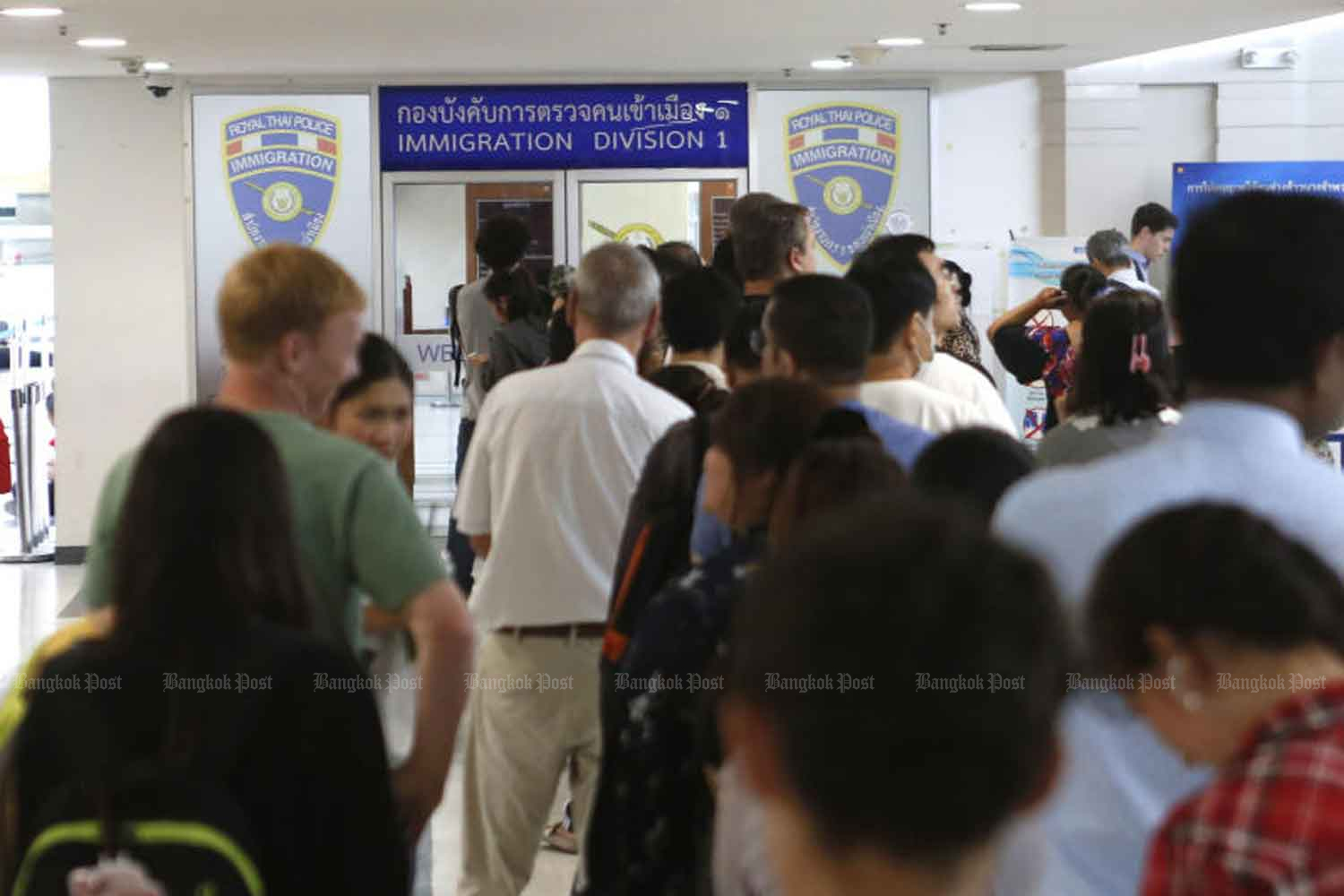
The Immigration Bureau will tighten its visa extension rules to prevent foreign criminals from establishing businesses in the country, its chief said on Thursday.
Pol Lt Gen Pakpoompipat Sajjapan was responding to allegations by former politician Chuwit Kamolvisit that three former senior immigration police officers had taken bribes to approve longer stays for more than 3,000 Chinese nationals including many involved in illegal business activities.
The bureau, he said, had been strict about visa approvals over the past year because it was aware that foreign criminals could use loopholes in existing rules, or some immigration police might be lax in checking some foreigners’ documents.
“So, there will be a working group to revise rules on visa extension applications that cite work for foundations, the need to receive medical treatment, and for studying in both the formal and informal educational systems,” Pol Lt Gen Pakpoompipat said.
Mr Chuwit has said that student visas were granted to some foreigners as old as 50. In this case, the immigration chief said the bureau would revise its system.
However, he questioned whether there should be an age restriction on student visas, in keeping with “the concept of lifelong learning”.
“Foreigners who stay in Thailand with student visas must have certificates from educational institutions. So, educational institutions must do this right. The bureau’s regulations are already comprehensive but all other organisations related to foreigners’ visa extensions must cooperate closely,” Pol Lt Gen Pakpoompipat said.
He noted that Immigration Division 5 asked local schools to submit quarterly reports on the educational results of foreigners who had student visas. In the absence of such reports, their visas would be terminated and the foreigners must leave the country, he said.
Likewise, foundations that had foreign staff must report the activities of those foreigners on a regular basis.
“We did this before the issue made the headlines,” Pol Lt Gen Pakpoompipat said.
Mr Chuwit has alleged that a Chinese law firm was set up in Thailand to help Chinese nationals who arrived in the country on 30-day tourist visas, and that a Khon Kaen-based foundation was also involved in the visa-extension racket.







